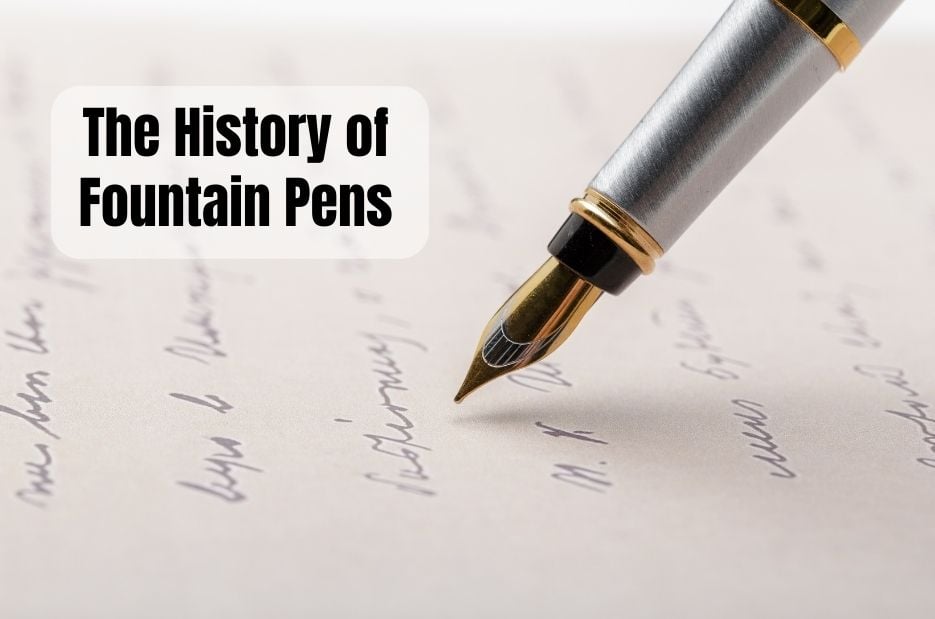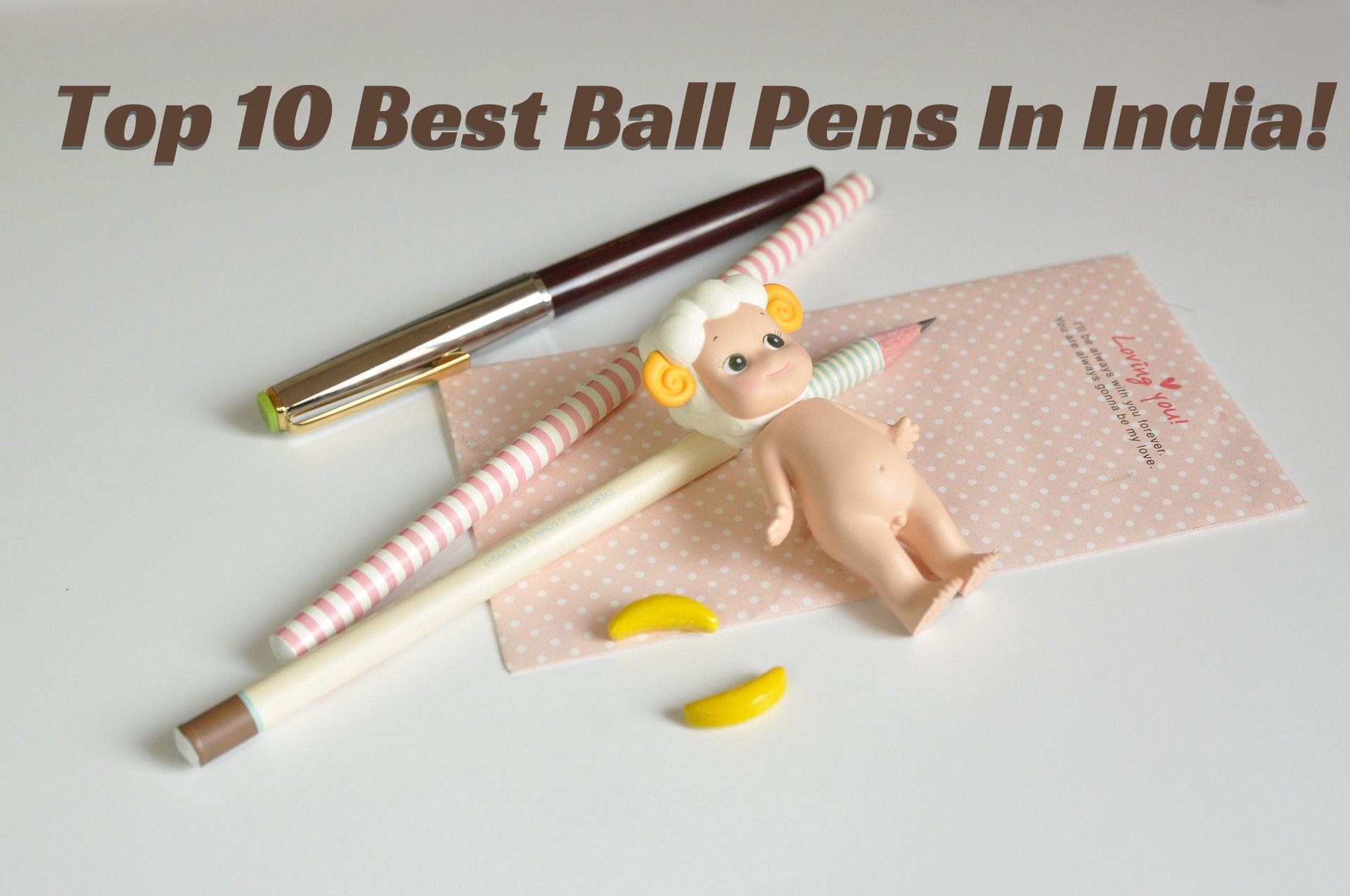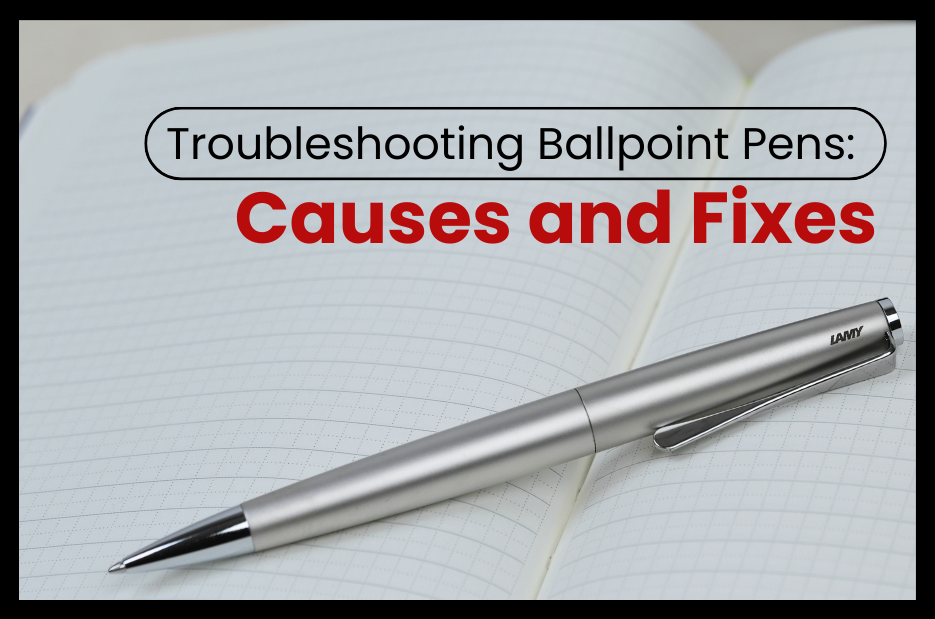The History of Fountain Pens

Fountain pens have been around for years and they are still highly preferred by pen users. These pens have a unique identity compared to other pens.
It is because they are pens with nibs and they stand out in so many ways. However, back then, when fountain pens were invented, they were very different from what they are today.
Fountain pens, at that time, meant any pen with ink inside it. With the evolution of pens, new terms for different pens were introduced.
Other terms related to pens have also evolved with different meanings through the years. For example, once, the term ‘pen’ referred to the nib and the rest of the body was known to be ‘pen holder’.
But as soon as the pens started to come in one body, they began to get different terminologies.
In this article, we will explore the evolution of fountain pens and even some interesting facts about them.
When And Who Invented Fountain Pens?
The modern fountain pen, as we know it today, was patented by Lewis Waterman in 1884. The first patent of a fountain pen was filed by Frederick Fölsch in 1809 in England.
However, many sources also claim that the first fountain pen was invented by Petrache Poenaru, a Romanian inventor, in 1827.
So, who invented the fountain pen stays a tricky question always.
Poenaru's Fountain Pen
Poenaru's fountain pen was made of a quill, a nib, and a barrel made of a metal tube. The barrel held the ink, and the nib regulated the flow of ink onto paper.
Although the pen was a significant innovation, it was not very practical, and it was never produced on a large scale.
Waterman's Fountain Pen
Waterman's fountain pen, on the other hand, was a significant improvement over Poenaru's design. Waterman was an American insurance salesman who was frustrated with the unreliable pens of his time.
He wanted a pen that would not leak or blot, and that would provide a consistent flow of ink. After years of experiments, he developed a pen that used a capillary feed system, which regulated the flow of ink onto paper.
This pen was also designed to be refilled with ink, making it more practical than earlier fountain pens.
His fountain pen became an instant success, and he went on to found the Waterman Pen Company, which became one of the largest and most successful pen companies of the 20th century.
Waterman's pen was also the inspiration for many other fountain pen designs, and it paved the way for the fountain pens that we use today.
Also Read: 12 Fountain Pen Mistakes to Avoid
Why Is It Called A Fountain Pen?
The name "fountain pen" comes from the fact that the pen uses a reservoir of ink, much like a fountain, to feed the ink to the nib. The ink flows continuously from the pen's reservoir, providing a smooth and uninterrupted writing experience.
Modern Fountain Pens And Their History
Fountain pens continued to evolve over time, with new designs, materials, and ink technologies. In the early 20th century, fountain pens became a symbol of luxury and status, with high-end brands like Montblanc and Parker dominating the market.
In the mid-20th century, the introduction of ballpoint pens caused a decline in the popularity of fountain pens, but they still remained a favourite among pen enthusiasts and collectors.
In recent years, there has been a resurgence of interest in fountain pens, with many modern brands offering a wide variety of designs, colours, and materials.
Modern fountain pens are made with a variety of materials, such as acrylic, metal, and resin, and they come in different nib sizes, shapes, and materials. Some fountain pens are also made for particular purposes like drawing or calligraphy.
One of the most popular modern fountain pen brands is Lamy, a German brand known for its innovative designs and high-quality materials.
Also Read: How to Choose a Fountain Pen?
Lamy fountain pens come in a variety of colours and finishes, and they are designed for both comfort and performance. They have everything from expensive fountain pens to affordable ones.
There are many other modern fountain pen brands that offer a variety of styles, materials, and features. Some fountain pens are even designed for use with different types of ink, such as watercolour ink or calligraphy ink.
Overall, modern fountain pens are a testament to the enduring appeal of this classic writing tool.
With their history and evolution, modern fountain pens continue to offer a unique writing experience that cannot be replicated by other writing instruments, and they remain a favourite among writers, artists, and pen enthusiasts around the world.
Are Fountain Pens Used Today?
Although fountain pens are not as popular as they once were, they are still used by many people today.
Fountain pens are favoured by those who enjoy the tactile sensation of writing, the smooth flow of ink, and the unique character that each pen and nib can produce.
Many people also buy fountain pens as they are environmentally friendly since they can be refilled with ink, reducing the amount of plastic waste generated by disposable pens.
Also Read: How to Properly Store Your Pen Collection?
Conclusion
The fountain pen is a timeless writing instrument that has stood the test of time. Despite the instruction of newer technologies, fountain pens continue to offer a unique writing experience that cannot be replicated by other writing instruments. With their history and evolution, modern fountain pens are a testament to the enduring appeal of this classic writing tool.















Comments
A more thorough discussion of the early history of fountain pens can be found here:
http://www.richardspens.com/ref/history/who_really.htm
Wuhdsw3 h na ta phone
Pata nahi kya